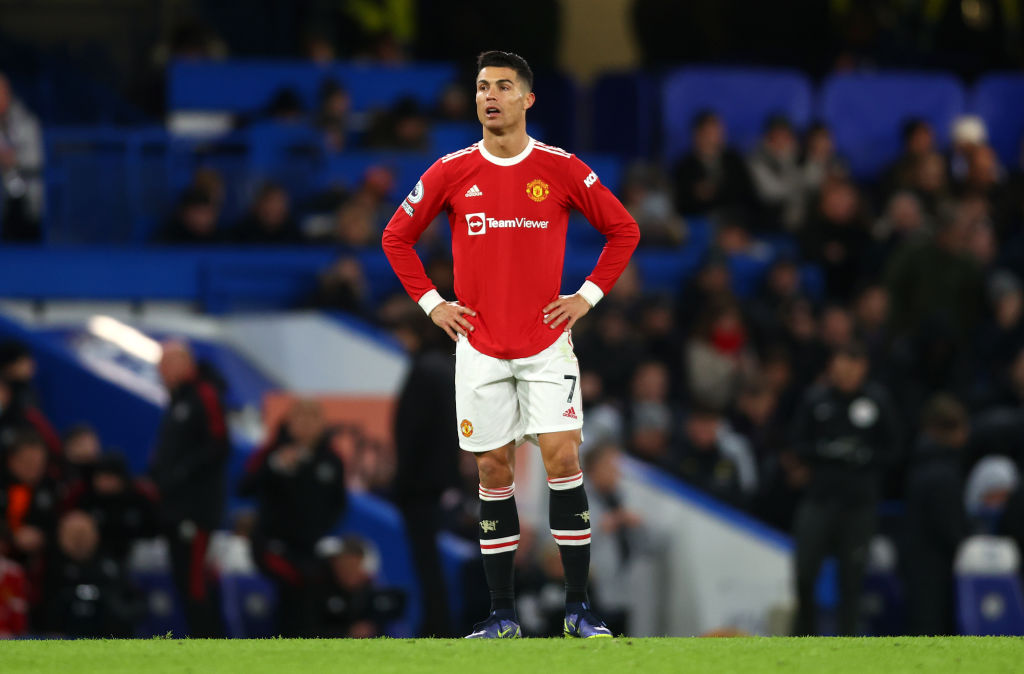Why brand Manchester United keeps them hooked

Around this time of year, Christmas comes early for many football fans with the release of the immersive fantasy world that is Football Manager. Will this be the year I take Newport County from League Two to Champions League glory? Let’s spend 250 hours over the next 12 months finding out.
In this year’s game something immediately jumps out. When choosing your real-life team, you’re presented with the option of “Man UFC” – the latest edition of Football Manager no longer has the rights to use Manchester United’s name.
Such off-pitch brand management is representative of the savvy, modern superclub that is United. But has the global brand now become more of a priority than what happens on the pitch?
The appeal of Football Manager for many is the opportunity to live out the dream of running the club you support and spending the chairman’s millions on new players.
The transfer rumour mills of the tabloids and Twitter reflect how the promise of player signings is what most excites many of today’s global fanbases. It can feel that a big-name transfer is more important than winning a trophy.
For “Man UFC”, is the re-signing of Cristiano Ronaldo, and the positive impact on brand sentiment, the equivalent of lifting some silverware?
Funnier old game
On the pitch, United are a must-watch, if not necessarily for the right reasons. They have lacked the structure to win against big rivals but possess enough individual superstars to get them past lesser sides, often in the last minute.
They’ve re-signed one of the best players in the game’s history with one of the sport’s great enigmas, Paul Pogba, behind him in central midfield.
Throw in a homegrown striker who holds the government to account and, this week, the replacing of a club legend with a big-name foreign manager, and you have an evolving multi-storyline soccer soap opera. An unmissable EastEnders Christmas Special which you can’t stop watching. And what matters is that you continue tuning in.
United are bigger news now than they have been since Jose Mourinho’s arrival. They currently command more column inches and Sky Sports News hours than the three teams who are actually battling to win the league.
The only clubs who can compete with them in terms of talkability are Europe’s two other great branding behemoths, Barcelona and Real Madrid. They too are struggling to replicate past glories on the pitch, yet a global audience still can’t get enough.
We live in an era where the biggest names in the beautiful game are looking beyond mere football, into a space where they become sports entertainment brands. And the first rule of brand clubs is that everyone must talk about brand clubs.
Whether you like it or not, football is a product. Many sports consumers across the world are borderline addicted to the game and keep coming back for more as, unlike most other consumer entertainment, the end-product is, to an extent, uncontrollable. No matter what you do, on-field success is never guaranteed.
United have spent £1bn since the end of the Sir Alex Ferguson era yet haven’t won the league.
With Manchester City, Chelsea and Liverpool so far ahead of them, that doesn’t look like changing soon – no matter what miracles new interim boss Ralf Rangnick might work.
Yet, if you keep on signing the likes of Jadon Sancho and Ronaldo every summer, fans will be appeased, shirt sales will boom, and the hope will continue to kill you. The off-field “success” of transfers can be guaranteed. It’s a funnier old game than it used to be.
Media messaging
Also contributing to the strange world of brand United is a fanbase that is more patient than most.
The supporters are to be applauded for recognising the Ferguson era was a once-in-a-lifetime experience of near-constant success and to expect the same of subsequent managers would be ridiculous. Even after the defeats to City and Liverpool there were no large-scale protests, although that doesn’t mean that the club’s gurus aren’t keeping a keen eye on social media sentiment and reacting accordingly.
Gary Neville spoke out against this style of managed media messaging, yet it’s a reality of modern sport and, again, United are very good at it.
At the end of the season only one club can win the league and another, maybe, the Champions League. There is currently no trophy for sports entertainment brand of the year, but United must be in the running.
Matthew Fletcher-Jones is a director at sports and entertainment agency Cake.